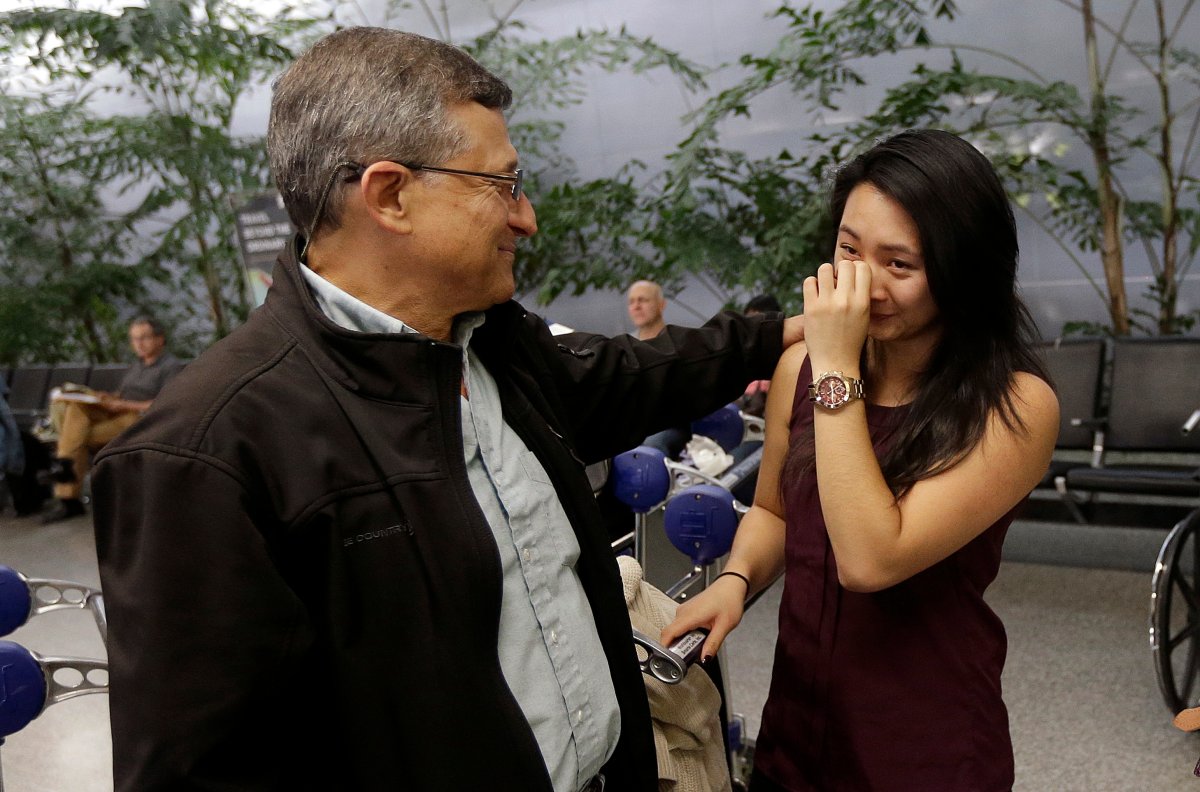SAN FRANCISCO – Four students returned home to smiles and hugs from family and friends in the U.S. Tuesday after being briefly detained in Russia during a student leadership conference.

The students were held for several hours Thursday in St. Petersburg. They were allowed to leave the country Monday after a judge found they possessed the wrong kind of visa and each paid a fine of about $110.
“I’m definitely ecstatic to be home,” Jennifer Phan, 21, said after arriving at San Francisco International Airport.
Phan and her colleagues said Russian authorities didn’t mistreat them, and they were never handcuffed or jailed. But Phan and the others believe officials were trying to intimidate them when they walked the group past two dank cells at an immigration centre where they were briefly held.
The saga began as members of the California Association of Student Councils were meeting with their Russian counterparts in St. Petersburg. Russian authorities barged into a closed meeting Thursday and demanded to see travel papers from Phan and Sterling Winter, 18, of Chico, and Liana Randazzo, 27, and Quygen Ngo, 24, who are from San Jose.
The four took the authorities to nearby hotel to retrieve the documents, which were deemed insufficient. The U.S. group was then taken to an immigration centre about 50 miles (80 kilometres) away and questioned about their purpose in the country before being brought to a judge. The judge needed more information and ordered a new hearing Monday, allowing the students to return to their hotel. They said they spent the weekend sightseeing but were tense and confused.
Randazzo said they were provided with interpreters, but some of them seemed too friendly with prosecutors arguing that the group possessed the wrong type of visas.
The Tass news agency reported Yulia Nikolayeva, Russia’s Federal Migration Service representative in St. Petersburg, said in a court hearing that the four had come to Russia on tourist visas but the activity they participated in was considered “social-political activity.”
June Thompson, executive director of the California Association of Student Councils, said she understands that Russia is sensitive to concerns that Westerners may come to the country to teach locals about political activism, which could be seen as encouraging opposition.
“If they get a sense of an American organization or any foreign money is coming in, then they have to register as a foreign agent,” Thompson said. She said the four handled the situation with extraordinary poise and clear thinking.
U.S. State Department spokeswoman Jen Psaki confirmed the students were “briefly detained in St. Petersburg before being released” and they were provided “all possible assistance.”
The conference was being led by the Association of Young Leaders, a Russia-based association that teaches young people leadership skills.
—
Associated Press writers Sudhin Thanawala and Paul Elias in San Francisco, Matthew Lee in Washington, and Jim Heintz in Moscow contributed to this report.



Comments